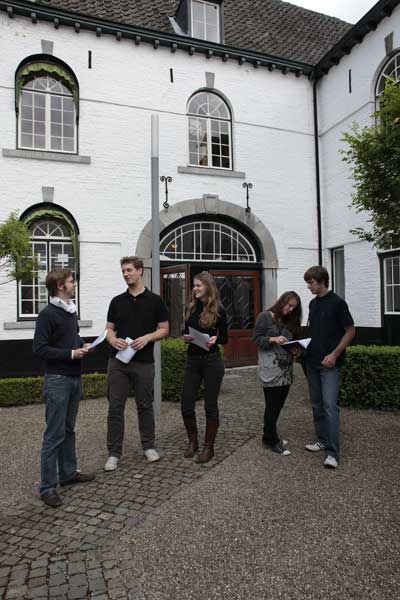Broaden your horizons with international study
Venturing overseas to get a degree makes you attractive to employers – and it's fun

UK students may be beginning to break out of their island mentality, according to new figures from the British Council. Released exclusively to The Independent, the provisional findings show a 6 per cent rise in take-up of the Erasmus programme, the EU initiative that enables students to spend a year of their degree studying abroad. The total number of takers in 2008-09 was a record 10,843.
The British Council attributes this rise to students wanting to boost their credentials in the recession, as well as a new opportunity to do work experience on the programme. "A period abroad gives students something extra for their CVs, it makes them stand out from others who may have the same grade but no international experience," says marketing manager Jude Thomas. "Students are once again looking for a key differentiator to ensure they get a good job when they graduate into a difficult economic climate."
This is the second year running that the number of British students taking up the Erasmus programme has, slowly and tentatively, increased. The same pattern appears to be happening at postgraduate level. In 2007, 10 applications were made by British universities for the Erasmus Mundus programme; this year, there were 18. New data from America also shows a 4 per cent increase in British students travelling to the USA this year, a trend boosted by organisations like the Fulbright Commission that offers scholarships to the bright and poor.
Despite these increases, Brits are still massively under-represented in undergraduate and postgraduate courses across the Continent. Last year, only 10,278 British students left the country under the Erasmus programme compared to 18,729 students that came to the UK. This asymmetry continues even though universities on the Continent often have good courses, lower prices and frequently teach in English.
Take the HEC International Business School in Paris. A prestigious institution that has been running since 1881, it was voted the number one business school in Europe by the Financial Times this week. An institution with comparable rankings in the UK is the London Business School, but that charges £45,000 for an MBA rather than £41,000. Other continents have woken up to the opportunity – 20 per cent of HEC's 200 students are from North America and 35 per cent are from Asia – but only 3 per cent are from the UK.
According to Valerie Gauthier, associate dean at HEC, Britons are missing out. "Our students come from all over the world and they want that diversity when they come here. They know it makes them more attractive to employers. If you want to succeed in global business, you have to be able to work with different people.
"British students think that everything will be taught in French, but everything is taught in English. Often, what puts off potential candidates is simple misunderstanding and a lack of knowledge about what HEC is about."
Once they break through the stereotypes, European educators claim that British students are pleased with the education they receive on the continent. Simon Burns, 21, took his undergraduate in Liverpool. By chance he came across an MA in European studies at Maastricht University in the Netherlands on the internet. After he saw that the fees were one-eighth of the price of those in Britain, he decided to go for it.
"I just stumbled across it, but now I'm here I'd definitely recommend it to others. It sets you out from the crowd, it pushes you out of your comfort zone and it's good life experience," he says. "These courses should definitely be promoted more in England. People [at home] are impressed that I did it, but they still think I'm a bit weird – studying abroad isn't the done thing."
European universities are trying to encourage more British students to pick up their passports. This year Maastricht is taking out adverts in more than 15 student newspapers in the UK. In France, business schools such as EMLyon are introducing programmes designed to appeal to international students, including an opportunity to spend a year in Shanghai.
In the west of France, Audencia Nantes school of management is trying to make examples of their few British students, publicising their fast-paced careers into top European companies. Such opportunities are probably worth breaking the island mentality for. As Burns says: "If you don't like it, you can always go home."
Join our commenting forum
Join thought-provoking conversations, follow other Independent readers and see their replies
Comments
Bookmark popover
Removed from bookmarks